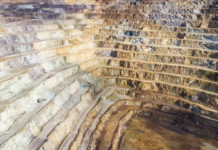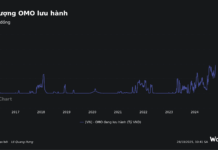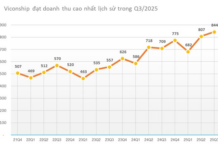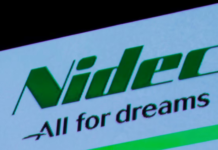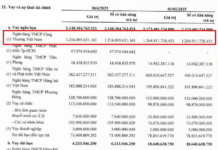Many incentives and support for investment in high-tech zones
According to Decree No. 10/2024/NĐ-CP on high-tech zones, effective from March 25, there are many incentives and support policies for investment in high-tech zones such as investment incentives and support policies for projects in high-tech zones, encouragement of investment in technical infrastructure construction and business, social infrastructure development for workers in high-tech zones, policies on high-tech research and development activities, high-tech business incubation and training high-tech workforce…
Investment projects and activities in high-tech zones are prioritized to participate in training and recruitment programs, support research activities, high-tech application and transfer, development of high-tech industries, development of high-tech agriculture, support for innovative enterprises, small and medium-sized start-ups, support for borrowing capital and other programs of the Government, ministries, and localities.
In addition, in terms of the incentive mechanism for the construction and operation of technical infrastructure, the Decree stipulates that the State encourages organizations and individuals with sufficient experience and capacity to participate in the construction and operation of high-tech infrastructure, including the construction and operation of the entire high-tech technical infrastructure system or a part of it.

Many incentives and support for investment in high-tech zones
New regulations on quality inspection of railway vehicles
On January 26, 2024, the Ministry of Transport issued Circular No. 01/2024/TT-BGTVT on quality inspection of technical safety and environmental protection for railway vehicles. The Circular is effective from March 15, 2024.
According to the Circular, the types of quality inspection of technical safety and environmental protection include: Production inspection, import inspection, modification inspection, periodic inspection.
Specifically, production inspection is carried out for new equipment, vehicles, and production assemblies; import inspection is carried out for new imported equipment, vehicles, and used imported vehicles; modification inspection is carried out for vehicles running on national railways, specialized railways.
Periodic inspection is carried out for vehicles running on national railways, specialized railways, urban railways, and train tail signal devices.
The periodic inspection cycle is clearly specified by type of vehicle and operating time. For example, for imported and newly produced vehicles on national railways, urban railways, the inspection cycle for the locomotive and self-propelled specialized vehicles is 18 months, for passenger cars is 28 months, for freight cars and non-self-propelled specialized vehicles is 36 months.
For vehicles that have been operating on national railways for less than or equal to 30 years from the production year, the inspection cycle for the locomotive and self-propelled specialized vehicles is 18 months, for passenger cars is 14 months, for freight cars and non-self-propelled specialized vehicles is 20 months.
For vehicles that have been operating on national railways for more than 30 years from the production year and still have remaining service life, the inspection cycle for the locomotive and self-propelled specialized vehicles is 15 months, for passenger cars is 12 months, for freight cars and non-self-propelled specialized vehicles is 15 months.
The Circular also stipulates that vehicle owners and operating authorities are responsible for inspecting the operating conditions of the vehicles to ensure the safety and environmental protection quality of the vehicles before participating in traffic, and are responsible for repairing and maintaining the vehicles to ensure compliance with national technical safety and environmental protection standards between two inspection periods…
Increased ceiling fare for domestic flights
The Ministry of Transport has issued Circular No. 34/2023/TT-BGTVT amending and supplementing some provisions of Circular No. 17/2019/TT-BGTVT on the price framework of passenger transport services on domestic air routes.
Circular No. 34/2023/TT-BGTVT is effective from March 1. Accordingly, the Circular amends the price framework of standard economy class passenger transport services. Routes with a distance of less than 500km have a ceiling price of VND 1.6 million/ticket/one way for economically developed routes and VND 1.7 million/ticket/one way for other routes.
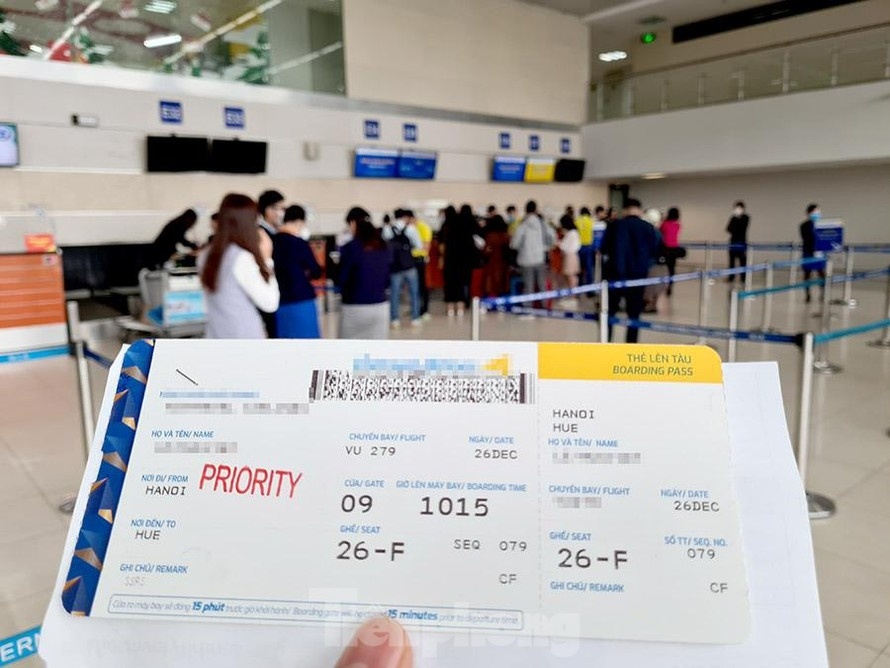
The ceiling fare for domestic flights will increase from March 1
The remaining groups of routes bear a price increase ranging from VND 50,000-250,000/ticket/one way compared to the previous regulations, depending on the length of each route.
Specifically, for routes from 500km to less than 850km, the price ceiling is VND 2.25 million/ticket/one way (old price: VND 2.2 million/ticket/one way); for routes from 850km to less than 1,000km, the maximum fare is VND 2.89 million/ticket/one way (old price: VND 2.79 million/ticket/one way); for routes from 1,000km to less than 1,280km, the price ceiling is VND 3.4 million/ticket/one way (old price: VND 3.2 million/ticket/one way) and for routes with a distance of 1,280 km or more, the price ceiling is VND 4 million/ticket/one way (old price: VND 3.75 million/ticket/one way).
The maximum fare covers all passenger charges for an air ticket, excluding value-added tax and collection amounts for airports (including passenger and baggage handling prices, security assurance prices, additional service prices).
National standards for university education institutions
The Ministry of Education and Training has issued Circular No. 01/2024/TT-BGDĐT on national standards for university education institutions. This Circular is effective from March 22 and abrogates Circular No. 24/2015/TT-BGDĐT of the Minister of the Ministry of Education and Training on national standards for university education institutions.
University education institution standards are the basis for implementing the planning and arrangement of the university education institution network; evaluating and monitoring the conditions ensuring the quality and accountability of university education institutions in accordance with the law.
The university education institution standards include 6 criteria with 20 sub-criteria. Specifically, Criterion 1: Organization and Management includes 4 sub-criteria; Criterion 2: Lecturers includes 3 sub-criteria; Criterion 3: Facilities includes 4 sub-criteria; Criterion 4: Finance includes 2 sub-criteria; Criterion 5: Enrollment and Training includes 5 sub-criteria; Criterion 6: Research and Innovation includes 2 sub-criteria.
The Ministry of Education and Training guides university education institutions to provide and update data to serve the determination of the indices and evaluation of the extent of compliance with the criteria of university education institution standards into the university education institution database system. The results of implementing the university education institution standards of university education institutions must be published before June 30 each year, starting from 2025 for the previous contiguous reporting year.
License fee for offshore sinking
The Ministry of Finance has also issued Circular No. 8/2024/TT-BTC on February 5, 2024 regulating the collection level, collection mode, and submission of license fees for offshore sinking. This Circular is effective from March 21, 2024.
This Circular regulates the collection level, collection mode, and submission of license fees for granting permits for offshore sinking, including granting, re-granting, extension, modification, and supplementation of permits for offshore sinking.
The fee collection organization is the competent authority issuing permits for offshore sinking according to the regulations on natural resources, marine and island environment.
The fee collection organization retains 100% of the amount of fees collected for submission to the state budget. The cost of implementing fee collection is financed by the state budget according to the plan of the fee collection organization as prescribed by the regime, the state budget limits according to the law. The fee collection organization carries out declaration, collection, and submission of fees as prescribed in Circular No. 74/2022/TT-BTC.
License fee for multi-level trading registration certificate
On the same day, February 5, 2024, the Ministry of Finance issued Circular No. 09/2024/TT-BTC (Circular 09) regulating the level of collection, collection mode, submission, management, and use of appraisal fees for multi-level trading registration certificate. This Circular is effective from March 21, 2024.

The fee to grant multi-level trading registration certificate will change from March 21
Circular No. 09 applies to fee payers; fee collection organizations; and other organizations and individuals related to the collection, collection, management, and use of appraisal fees for multi-level trading registration certificate. Fee payers according to the regulations in Circular No. 09 are businesses submitting an application file for granting a multi-level trading registration certificate.
According to Circular No. 09, the fee level for the appraisal of granting a multi-level trading registration certificate is as follows: For new issuance and extension cases: VND 5 million/appraisal, for amendment, and supplement cases of multi-level trading registration certificates: VND 3 million/appraisal.
The fee collection organization according to the regulations in this Circular includes the Ministry of Industry and Trade or state agency under the Ministry of Industry and Trade responsible for appraising the file for granting a multi-level trading registration certificate according to the regulations of the law.
The fee collection organization reserves 90% of the amount of fees collected to cover the cost of appraisal and fee collection activities according to the regulations in clause 4, Article 1 of Decree No. 82/2023/ND-CP of the Government amending and supplementing some articles of Decree No. 120/2016/ND-CP of the Government detailing and guiding the Law on Fees and Fees; submits 10% of the amount of fees collected to the state budget.
In case the fee collection organization is a state agency not eligible for activity cost allocated from the fee collection as prescribed in clause 3, Article 1 of Decree No. 82/2023/ND-CP, it shall submit the entire amount of fees collected to the state budget. The cost of implementing appraisal and fee collection activities is financed by the state budget according to the plan of the fee collection organization as prescribed by the regime, the state budget limits according to the law.
License fee for rare mineral exploitation
Also on February 5, 2024, the Ministry of Finance issued Circular No. 10/2024/TT-BTC regulating the level of collection, collection mode, submission, management, and use of appraisal fees for assessing mineral reserves and license fees for mineral exploitation activities. This Circular is effective from March 21, 2024.
The Circular specifies that the level of license fee collection for mineral exploration activities is as follows: For exploration areas less than 100 hectares, the fee is VND 4 million/1 license; for exploration areas from 100 hectares to 50,000 hectares, the fee is VND 10 million/1 license; for exploration areas over 50,000 hectares, the fee is VND 15 million/1 license.
The level of license fee collection for mineral exploitation activities is as follows: Licenses for river-bed sand and gravel exploitation: With an exploitation capacity of less than 5,000 m3/year: VND 1 million/license; with an exploitation capacity from 5,000 m3 to 10,000 m3/year: VND 10 million/license; with an exploitation capacity of over 10,000 m3/year: VND 15 million/license.
Licenses for the exploitation of common construction materials with an area of less than 10 hectares and an exploitation capacity of less than 100,000 m3/year: VND 15 million/license; licenses for the exploitation of rare minerals: VND 80 million/license; licenses for the exploitation of special and hazardous minerals: VND 100 million/license.
Fee for exploitation and use of geological and mineral publications
On February 5, 2024, the Ministry of Finance issued Circular No. 11/2024/TT-BTC regulating the level of collection, collection mode, submission, management, and use of fees for the exploitation and use of geological and mineral publications. This Circular is effective from March 21, 2024.
According to the Circular, the fee collection organization is the competent authority providing geological and mineral publications according to the regulations of the law.
The fee payer pays the fee when receiving the results of geological and mineral publications from the competent authority providing geological and mineral publications; pays the fee to the fee collection organization according to the form prescribed in Circular No. 74/2022/TT-BTC of the Minister of Finance.
The fee collection organization retains 60% of the amount of fees collected to cover the costs of providing services, fee collection according to the regulations in clause 4, Article 1 of Decree No. 82/2023/ND-CP of the Government amending and supplementing some articles of Decree No. 120/2016/ND-CP of the Government detailing and guiding the Law on Fees and Fees; and submits 40% of the amount of fees collected to the state budget.
In case the fee collection organization is a state agency not eligible for activity cost allocated from the fee collection as prescribed in clause 3, Article 1 of Decree No. 82/2023/ND-CP, it shall submit the entire amount of fees collected to the state budget. The cost of providing services, fee collection is financed by the state budget according to the plan of the fee collection organization as prescribed by the regime, the state budget limits according to the law.




